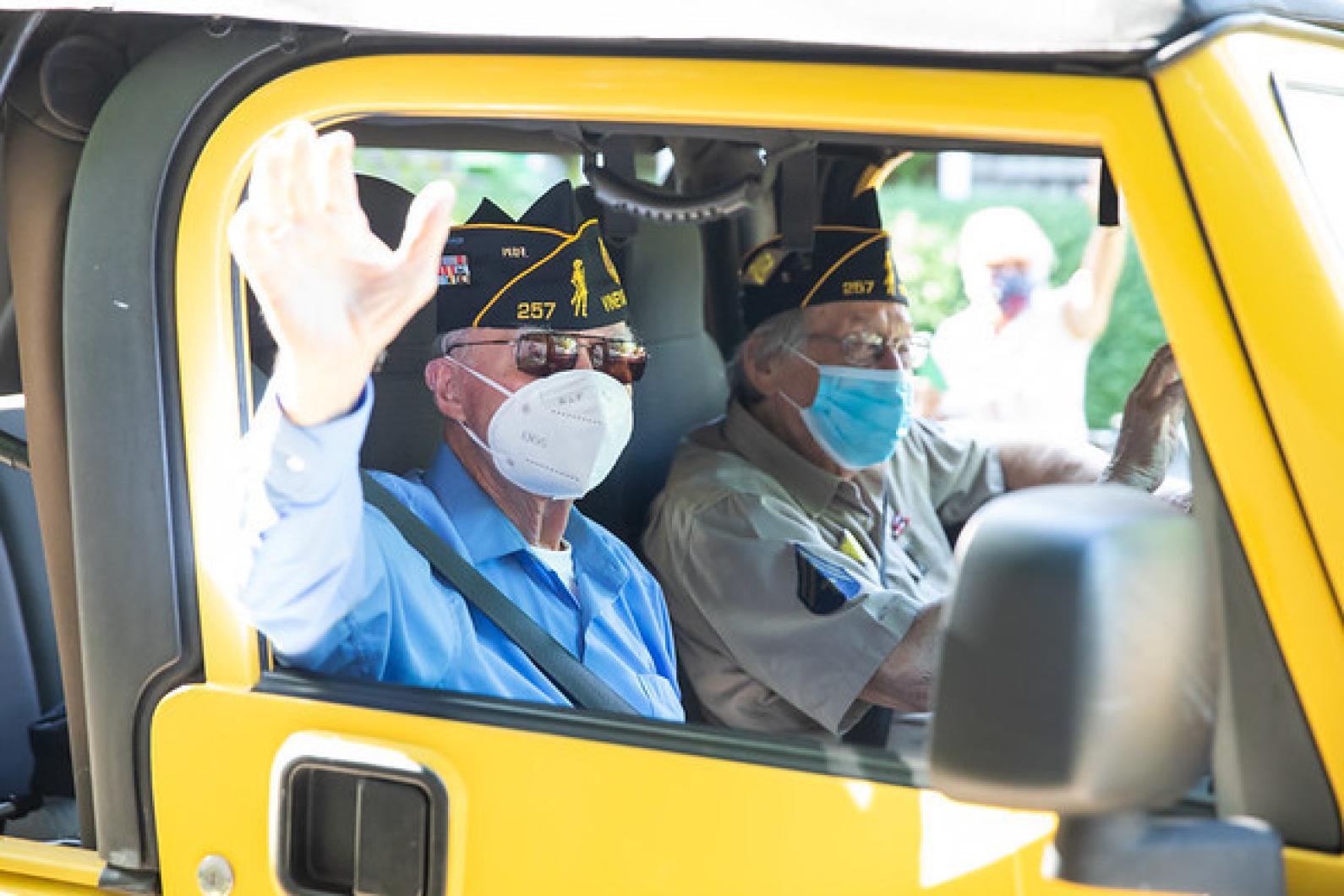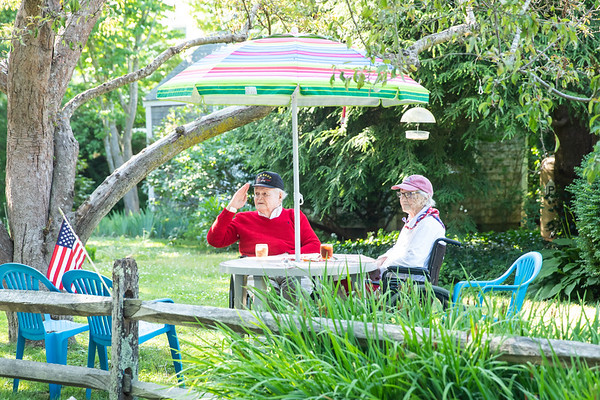Revving up the motor of his yellow Jeep, World War II veteran Herb Foster, 92, clad in his American Legion cap and button down shirt, leaned out the window.
“It’s go time!” he yelled.
With friend and fellow veteran Bob Falkenberg, 93, grinning beside him, Mr. Foster pulled the car into gear, setting out on a Fourth of July procession through the streets of downtown Edgartown. The annual parade had been canceled for the rest of town, but not for Mr. Foster and Mr. Falkenberg.
Mr. Foster and Mr. Falkenberg were escorted by the Edgartown police, including Chief Bruce McNamee, who rode in a blue truck with U.S. Coast Guard veteran Ken Ivory. The three-car procession set out from the Edgartown school parking lot at 5 p.m., the Fourth of July parade’s usual start time, and followed the traditional parade route through town.

The event was organized by Mr. Foster, with the help of the police, after the town had to cancel the 2020 parade due to the risks associated with the coronavirus. Mr. Foster did not want the complications of the pandemic to obscure the memory of those who have fought and died for the country.
“I look forward to the parade every year,” he said. “Despite what’s going on in the country today, it is very important to pay homage to all those men and women who were killed fighting for our country.”
Mr. Falkenberg agreed. “This is to make sure that those of us who are left get a voice because we’re just the guy next door, but we happen to do something special.”
Both Mr. Foster and Mr. Falkenberg served in the military during World War II. Mr. Foster served with the 24th Infantry Division in the occupation of Japan and Mr. Falkenberg with the 25th Infantry Division in Korea. Though originally from New York and New Jersey respectively, the two men met on the Island where they now live full-time. For years, they have celebrated the holiday together, driving in the parade side-by-side.
“He’s a very special guy,” said Mr. Falkenberg, pulling Mr. Foster into an embrace.
The procession, though modest, was a definite success. As the cars inched through town, they were met by an eruption of applause. Walkers, diners and passersby paused in the midst of their holiday afternoons to stand still, to wave, and to cheer for the men as they passed.
Before finishing the route, the parade also made a stop at the Mill street home of Ralph Lowell, another Island veteran who was unable to participate in the drive.
At the conclusion of the event. Mr. Foster noted that the experience had been very satisfying, but also very emotional for him.
“We did it, despite all the obstacles” he said. “I cried every minute of it.”
Reflecting on the day, Mr. Foster referred to the poem Ulysses by Alfred Tennyson, which he felt encapsulated the moment.
“It talks about not having the strength we had then, but still being able to fight, to do something,” he said.
Though much is taken, much abides; and though
We are not now that strength which in old days
Moved earth and heaven, that which we are, we are;
One equal temper of heroic hearts,
Made weak by time and fate, but strong in will
To strive, to seek, to find, and not to yield.








Comments (6)
Comments
Comment policy »